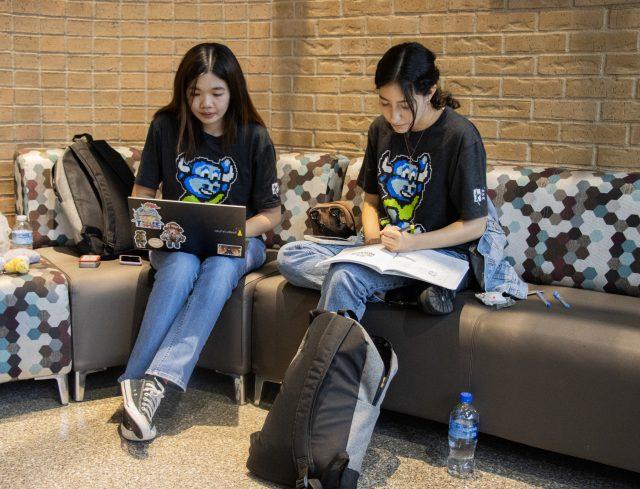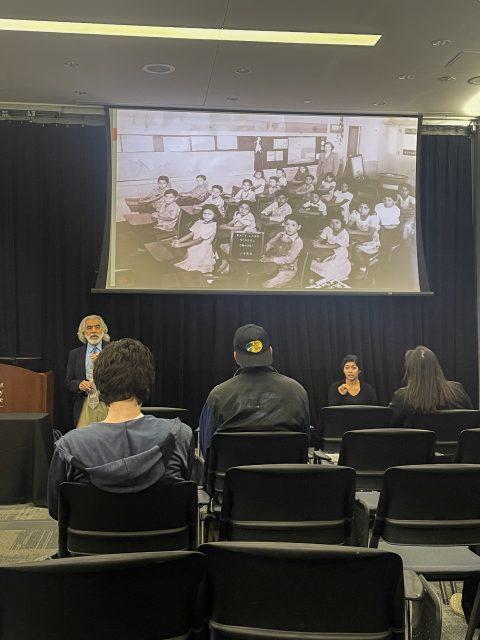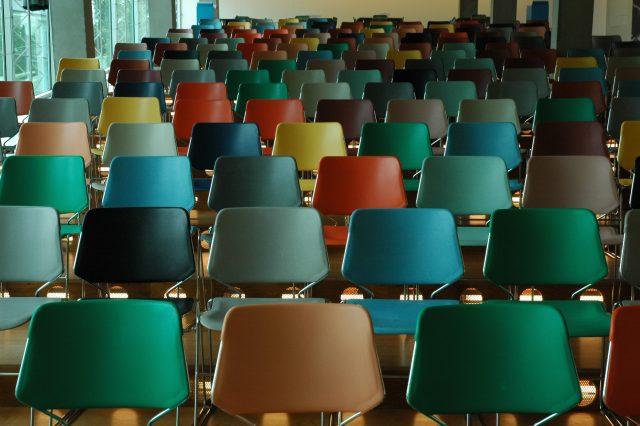FOUSIA ABDULLAHI
staff reporter
collegian.editor@tccd.edu
Wi-Fi network issues for students and faculty are being rectified with new wireless access points installed on NE campus.
In response to this problem, Chief Information Officer Todd Kreuger shared the administration’s work-in-progress solution.
“We understand the importance of improving the Wi-Fi coverage at Northeast Campus and throughout the district,” he said. “As a result, we are in the process of installing new Access Points District-wide. We have installed and activated new wireless access points on the Northeast campus in NTAB and NHSC.”
On Sept. 24, a new wireless access point was activated in NACB, along with three more times as many wireless points across the campus. These additions will improve the network issues, students and faculty have been experiencing.
In the first weeks of the semester, one of the running themes in classes, library and other spaces has students and faculty frustrated that the Wi-Fi doesn’t stay connected for long periods or lags.
“I do most of my schoolwork online; when the internet is slow, it makes it harder for me to complete my assignments,” said NE student Layla Stewart, a cybersecurity major. “I have to kind of rush through them.”
In a board meeting on Sept 21, 2021, a motion was approved to upgrade the district’s Wi-Fi and six wireless access using $3.5 Million in HEERF (Higher Education Emergency Relief Grants) with a 15% for contingency to date. $3.9 Million has been spent.
“Wi-Fi six is an ongoing multi-year project and is anticipated to be completed in 2025,” Kreuger said.
Waiting on speed or connectivity can take instruction time from students and faculty if assignments or information need to be sent to the instructor during class and the internet is slow or students have to sign in multiple times. Stewart has experienced just that.
“It just takes longer to get assignments submitted and for my professor to see that I have submitted my papers so that it is able to be graded properly and it wasn’t that I turned it in late,” she said.
Julia Overby, a NE health studies major, said she was frustrated with leaving campus and working in a coffee shop, because she can’t stay connected to the Wi-Fi long enough to study.
“it’s hard to grab 100% full information if a professor wants you to look up the textbook or even get on Canvas,” Overby said. “Sometimes I really need the extra PowerPoint when they move the slide, I keep the PowerPoint right next to me so I can finish my notes. So, it definitely affects even the little things.”
Faculty are also affected by the Wi-Fi connection in class. If the classroom isn’t equipped with computers, teachers have to wait for students to log in multiple times, or the internet speed takes too long to load on personal devices.
NE speech adjunct professor Kenny Leblanc said the Wi-Fi connection has been an issue for her and students for all three semesters she has been working at TCC. Furthermore, the problem has recently worsened.
It has impacted her ability to grade on her personal device as well, which inhibits students’ growth because students can’t view feedback from the teacher on canvas and ask questions about her feedback in class. This has left her having to use her hotspot to connect to the internet and do grading.
Several students said they don’t know how to log into the school’s Wi-Fi, and others have noticed that connecting to the school Wi-Fi was never part of any orientations or emails they’ve received, as well.
“Probably 80 or 90% of our students are using TCCD public even though our website says don’t,” McMicken said.
On Sept. 28, NE campus experienced a network outage due to an old wireless controller and everyone was advised to use ACC12 or TCCD public to connect to the schools Wi-Fi.
Director of Network Communication Services Nelson McMicken said the problem with the old wireless controller was fixed. He explained that buildings NIMC, NHSC, NACB, NADM, NTAB and NBSS are all working now with new access points. He also added that it’s important TCC members know which Wi-Fi network to use.
“To put it simply, there are five total networks. Rather than using the listed TCCD Public, an unsecured network, or TCCD Guest which is for non-students,” McMicken said. “Students and staff members must use the TCCD option listed unless an administrator or support worker tells you otherwise.”
An example of such network instruction change was on Sept. 28. During the network outage, there was a canvas notification and email about using the other networks. Similarly, this can be explained on a call or through an IT support ticket.
“The network seems to be getting better, but there are times when it’s still slow,” Stewart said.
McMicken also said the school is having issues with students not leaving their contact information in the support ticket, and they don’t have a way to get back to the students about their problem.
“We will continue upgrading access points while also assessing and addressing additional coverage needs. As you can imagine, this is a major undertaking that requires planning and coordination to ensure the right technology is installed and functioning properly,” Kreuger said.


































